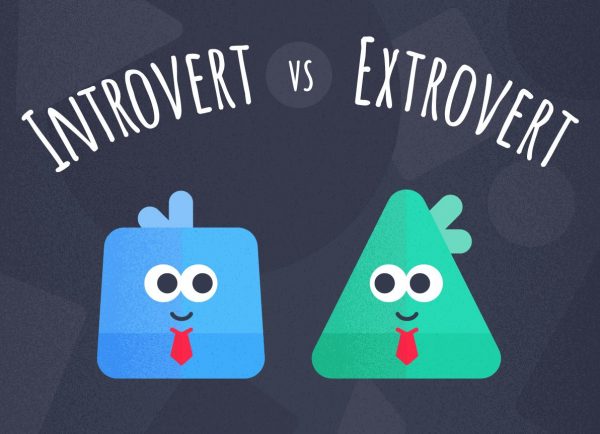hello test
Hello
Hello


If you just bought new, expensive resume paper, you’ve already made a job-search mistake. Most job applications and resumes are submitted online now — one of countless new trends in the modern hiring process. Many job seekers are using outdated job-search practices, risking the impression that they are unable to keep up with technology. Are you worried that your resume looks dated? Here are some signs.
You don’t include any links. Or worse, your links are dead.
The first section of your resume needs to include your name, address, email and phone number, and links to portfolios or websites. Any links that you do include should be checked to make sure they work, and only include links to sites that you regularly update. Also be sure to include a professional email address, and ditch the inappropriate “OMGlove2party” email, which sounds unprofessional.
You don’t use keywords.
The “summary” section is the best place to include keywords taken from the job description, since most hiring companies utilize applicant-tracking systems to narrow down possible candidates. However, be sure to incorporate keywords throughout the resume, but don’t just copy and paste the job description.
Place the most relevant and interesting experience at the top. Most hiring managers only skim resumes, and leading with strong qualifications can be a good attention-getter. Also be sure to remove any overly personal information. Old job applications used to inquire about marital status, family members and sometimes religious affiliation. Not only is that information illegal to ask now, it’s irrelevant to most positions. Keep your resume clean, professional and focused.
You’ve listed “career objectives.”
In 2012, “career objectives” are a rarity. Instead of wasting valuable paper space, include a professional summary in your cover letter and apply it to the position you’re vying for and how it fits into your career plan. Reserve the career achievements/skills section for descriptions of honors or promotions, as well as performance-review quotes that cite strengths and quantifiable information. When referring to previous roles, use the past tense. Only current jobs and projects should be written in the present tense.
Also size up your resume and determine if you’re including more tasks than results for previous positions. Hiring managers are looking for candidates that can meet daily expectations as well as go above and beyond, which means that including any professional associations and awards is a resume boost.
You’ve listed every job you’ve ever held.
List relevant jobs only, not every part-time gig you held over the past 20 years. If you’re not sure if you should include a job, ask if it’s relevant to this position and your current career goals. For the employers you do list, make sure to include details on tasks you’re responsible for, as well as the company’s industry — there are 7.5 million companies in the U.S., and most of us don’t know what they do. If you have a gap in your history because of family obligations, “homemaker sabbatical” will sufficiently explain a work hiatus so the interviewer can focus on your work accomplishments.
You’ve listed your GPA.
Include alma mater details here, as well as other trainings, certifications and accomplishments that are relevant to your position. This section doesn’t need to list past courses taken. Unless you’re currently in school and applying for your first full-time position or internship, you most likely don’t need to include your GPA.
You’ve listed “references available upon request.”
That line is unnecessary. Unless the job posting specifically asks for references, don’t include any on your resume. If you get asked in for an interview, you may want to have a list of references prepared in advance, but keep your contacts to yourself before that step.
Other tips
Design your resume with a focus. Every detail should support the idea that you’re the best candidate for the position.
Use specific, concrete language that measures your accomplishments.
Remove overused words, such as “outstanding, effective, strong, exceptional, good, excellent, driven, motivated, seasoned or energetic.” Beware of unsupported claims of greatness.
Don’t include a photo.
Resumes should be no more than two pages, but most candidates will be better off with one page. Most hiring managers only glance at resumes, so be conscious of space, and organize the layout with a balance of white space and text. Avoid large blocks of text.
Go through drafts of your resume before you settle on one that works, and have several friends or family members proofread it. There should be no typos or formatting errors. Aim for a resume that is clean, simple and can be easily submitted online.
By Susan Ricker to http://jobs.aol.com


A job interview is usually the time when an employer gets to know the job candidate’s personality to see if he’s the right fit for the job. But what if you could choose a job that’s the right fit for your personality?
A recent CareerBuilder study reveals the positions that are better suited for introverts and extroverts. While extroverts tend to be enthusiastic, talkative, assertive and gregarious, introverts tend to be more reserved and less outspoken in groups. Though these characteristics aren’t the only factors in choosing a job, it can help to know what kind of role you could be best suited for.
The study found that extroverts were more likely to report being in management roles — 22 percent compared with 18 percent of introverts. “The data does indicate that extroverts may be better suited for higher-level positions, many of which involve a lot of collaboration and public speaking,” says Rosemary Haefner, vice president of human resources at CareerBuilder. “But that doesn’t mean an introvert can’t still rise high in a company. It may be the case that many of the respondents began as introverts and gradually became more extroverted as the situation demanded.”
When it comes to salary, the two personality types are on equal footing: Both extroverts and introverts were almost equally likely to earn six figures.
Want to know what job may be right for you? If you’re outgoing or social, consider the types of roles to which extroverts are drawn. Or, if you tend to be more withdrawn or reserved, check out the positions that introverts tend to choose.
Types of roles extroverts are drawn to:
Construction worker
Pharmacist
Therapist (occupational, physical, speech)
Event planner
Nurse
Advertising professional
Police officer
Firefighter
Sales representative
Accountant
Financial analyst
Customer service representative
Entertainer/performer
Types of roles introverts are drawn to:
Artist/designer
Engineer
Chef
Physician
Information technology — computer programmer/software developer
Machine operator/assembly/production worker
Mechanic
Editor/writer
Scientist
Veterinarian
Truck driver
Lawyer
Teacher
By Susan Ricker to http://jobs.aol.com